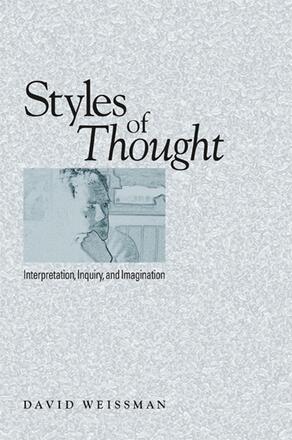
Styles of Thought
Interpretation, Inquiry, and Imagination
Alternative formats available from:
Differentiates inquiry from interpretation in order to secure a foundation for truth.
Description
Every man and woman is located in two ways. One is stolidly physical: each human body has a unique address and trajectory. The other comes with beliefs that locate us by answering a salvo of questions: Who, what, and where am I? What are my relations to other people and things? Answers come with either of two emphases. Beliefs critical to practical life and science require that we engage familiar things or find our way in strange cities and streets. Such beliefs supply meaning and security. Ascribing significance to myself or my family, religion, or state, I tell a story that locates me within a world of purpose and value. Neighbors feel and valorize their lives as I do, so our story spreads to dominate a people or an era. One procedure—inquiry—favors reality testing and truth. The other—interpretation—uses meaning to appease vulnerability and glorify believers. Beliefs of these two kinds are sometimes joined, but they are often opposed and mutually hostile. Both philosophy and culture at large confuse these ways of thinking. Styles of Thought distinguishes and clarifies them.
David Weissman is Professor of Philosophy at City College of New York and the author of many books, including Lost Souls: The Philosophic Origins of a Cultural Dilemma and The Cage: Must, Should, and Ought from Is, both also published by SUNY Press.
Reviews
"…Weissman has written a very clear, coherent, and engaging text … [it] represents a helpful and well-argued case for the importance of inquiry, as well as a view that dissents from much of the current philosophical emphasis on interpretation. " — American Catholic Philosophical Quarterly
"Like all of Weissman's work, this book sparkles with clarity and wit. He takes on one of the major issues facing contemporary thought and culture. What are we to do with the idea that all life is simply interpretation? Weissman's response restores the tradition of American pragmatism to its proper place. He argues that inquiry is not interpretation and that the workings of the world judge the truth of inquiries. He puts interpretation in its proper place in human culture: the function of interpretation is to shore up beliefs, rally our spirits, and make us more confident about our sense of ourselves and our position in the world. " — Joseph Grange, President, Metaphysical Society of America
"Weissman's description of inquiry and its relation to science and the practical side of life, and of interpretation in relation to values and the development of a holistic point of view are important steps in understanding these two concepts. " — Jorge J. E. Gracia, coeditor of Philosophy and Literature in Latin America: A Critical Assessment of the Current Situation